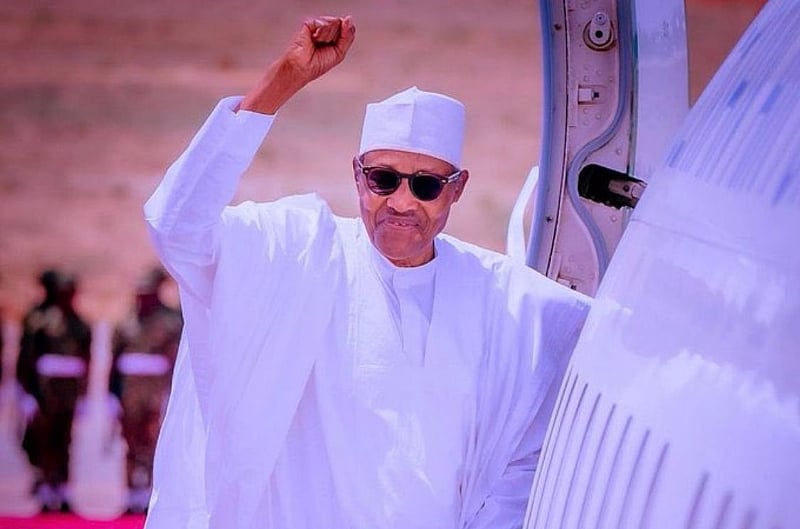Former Nigerian President Muhammadu Buhari has died at the age of 82 while receiving treatment at a clinic in London, United Kingdom.
His passing was confirmed in a statement issued by the President Bola Ahmed Tinubu Media Centre on Sunday, July 13.
The statement described his death as a profound loss to the nation, highlighting his leadership during challenging times in Nigeria’s history.
“It is with profound sadness that we at President Bola Ahmed Tinubu Media Centre acknowledge the passing of His Excellency, Muhammadu Buhari the immediate past President of Nigeria at 82 years.
“President Buhari’s tenure came at a particularly challenging period in our nation’s history. He answered the call to serve when the country faced immense difficulties, and with steadfast resolve, he embarked on a mission to steer the ship toward a more prosperous course,” the statement read.
Meanwhile, the President of the Federal Republic, Bola Ahmed Tinubu, has since directed that all national flags be flown at half-mast in honour of the late President.
Brief background of the late President
Born in December 1942 in Daura, Katsina State, Muhammadu Buhari grew up in northern Nigeria during the colonial era.
Orphaned by his father at the age of four, Buhari was raised by his Kanuri mother and spoke of being his father’s 23rd child and his mother’s 13th.
He attended primary school in Daura and later enrolled in boarding school in Katsina, where he credited the harsh discipline with shaping his character.
After completing his secondary education, Buhari joined the Nigerian Military Training College, embarking on a career that saw him train as an officer in the United Kingdom between 1962 and 1963.
By his mid-30s, he had risen through the ranks to serve as military governor of the then North-East region and later as federal commissioner for petroleum and natural resources under General Olusegun Obasanjo’s military government in 1976.
In 1983, Buhari became Nigeria’s military Head of State after a coup but was overthrown two years later. Decades on, he rebranded himself as a democrat, making three unsuccessful bids for the presidency before securing a historic victory in 2015 as the first opposition candidate to defeat an incumbent in Nigeria.
He was re-elected in 2019 for a second term, but his leadership drew mixed reactions from Nigerians who questioned his ability to deliver on his promises of change.


